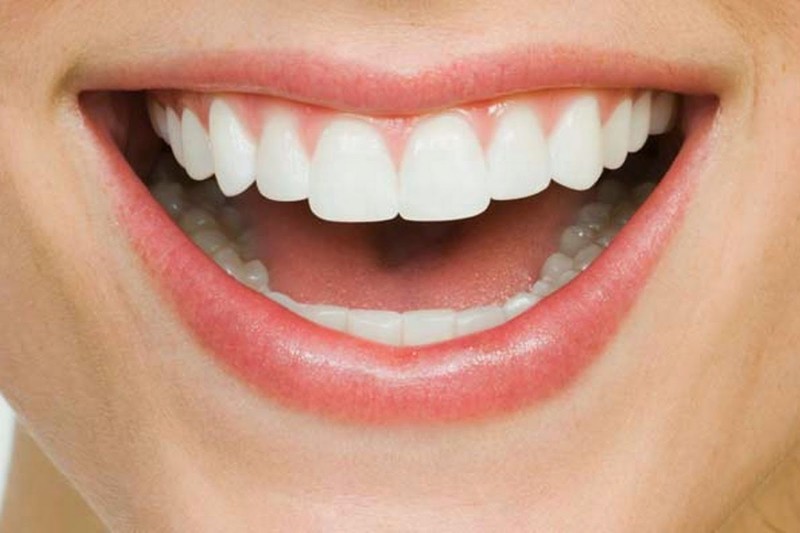
Maintaining a beautiful smile involves more than just having clean and white teeth; it also requires proper oral health. Experts emphasize the significance of both dental hygiene and a well-balanced diet to promote healthy teeth and gums. Incorporating certain superfoods into your diet can contribute to achieving and sustaining oral well-being.
1. Hydrate with Water:
Water is often regarded as the elixir of life, and its benefits extend to maintaining oral health. Adequate hydration is crucial for saliva production, which plays a vital role in the oral cavity. Saliva helps in the breakdown of food particles, neutralizes acids, and provides a natural defense against harmful bacteria. Moreover, it aids in maintaining a proper pH balance in the mouth, preventing conditions that may lead to tooth decay and gum diseases.
When you consume water, especially after meals, it helps in washing away food residues and reduces the risk of plaque buildup. The importance of hydration in oral health cannot be overstated, as it promotes an environment that is unfavorable for the growth of bacteria and prevents dry mouth, a condition associated with an increased risk of dental issues.
Experts recommend drinking at least 3 liters of water daily to ensure optimal hydration. This simple yet effective habit not only supports overall health but also contributes significantly to maintaining healthy teeth and gums.
2. Leafy Green Vegetables:
Leafy green vegetables are nutritional powerhouses, and their inclusion in your diet can have remarkable benefits for your dental health. Vegetables like spinach and kale are rich in essential vitamins and minerals, including calcium, which is crucial for strong teeth and bones. Carrots, known for their crunchy texture, stimulate saliva production, promoting a self-cleaning mechanism for the teeth.
Root vegetables like beetroots and those containing folic acid, such as ajwain (carom seeds), play a role in preventing gum diseases. Folic acid has been associated with reducing inflammation and supporting overall gum health. By incorporating a variety of these vegetables into your meals, you provide your body with the nutrients it needs to maintain optimal dental health.
In addition to their dental benefits, leafy greens contribute to general well-being by offering a rich source of antioxidants and fiber, supporting digestion and immune function.
3. Fruits Rich in Vitamin C:
Fruits have long been recognized as essential components of a healthy diet, and certain fruits, in particular, offer unique advantages for dental health. Apples, known for their crisp texture, stimulate saliva production and help in maintaining a clean oral environment. The natural sugars in apples are less likely to contribute to tooth decay compared to refined sugars found in many processed foods.
Strawberries and cranberries are rich in vitamin C, which is known for its antioxidant properties. Vitamin C supports the production of collagen, a vital component of gum tissue. Including these fruits in your diet not only contributes to dental health but also provides a flavorful and nutritious addition to your meals.
It's important to note that moderation is key, as fruits also contain natural sugars. However, the overall benefits of the vitamins, minerals, and antioxidants they provide make them valuable for maintaining a healthy smile.
4. Nuts for Micronutrients:
Nuts, including almonds, cashews, pistachios, and walnuts, are nutrient-dense foods with numerous health benefits, including promoting dental health. Almonds, for example, contain arginine, an amino acid known for its role in reducing the risk of cavities and preventing gum diseases.
These nuts are rich in essential micronutrients such as calcium, magnesium, and phosphorus, all of which contribute to the strength and structure of teeth. Chewing nuts also stimulates saliva production, aiding in the natural cleansing of the mouth.
Incorporating a variety of nuts into your diet provides your body with a range of nutrients that support overall health, including the well-being of your teeth and gums. However, it's essential to be mindful of portion sizes, as nuts are calorie-dense.
5. Seafood for Omega-3 Fatty Acids:
Seafood, particularly fatty fish like salmon, is a valuable addition to a diet aimed at promoting dental health. Fatty fish are rich in omega-3 fatty acids, specifically eicosapentaenoic acid (EPA) and docosahexaenoic acid (DHA). These fatty acids have anti-inflammatory properties and contribute to reducing inflammation in the body, including the gums.
Inflammation is a key factor in the development of various dental issues, such as gingivitis and periodontitis. Including seafood in your diet can help in maintaining healthy gums and supporting the overall recovery of oral health.
It's worth noting that omega-3 fatty acids offer a myriad of health benefits beyond dental health, including cardiovascular health and cognitive function. Therefore, incorporating fatty fish into your diet serves as a holistic approach to well-being.
In summary, each of these dietary recommendations plays a unique role in promoting optimal dental health. From maintaining proper hydration to incorporating nutrient-dense foods like leafy greens, fruits, nuts, and seafood, these dietary choices contribute to an environment that supports healthy teeth and gums. Adopting these habits, along with regular dental hygiene practices, can go a long way in preserving your beautiful smile and overall well-being.
Bones are becoming weak before age, cases of osteoporosis are increasing rapidly
Acidity is also a warning sign of heart attack, know when you should be careful
How to Add Magnesium to Your Lifestyle: Know Its Vital Health Benefits